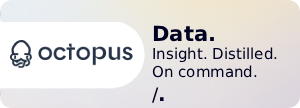There is a moment, in the middle of the night, when the computer screen becomes a mirror.
Not a mirror of the face, but a mirror of intention.
You sit before it, its blue light washing over your face, and you wonder: “Who is watching whom? Am I training the algorithm, or is it training me in obedience?”
It’s that simple. That’s how everything begins.
We now live in a strange time:
A time when artificial intelligence writes poetry, composes music, and apologizes for its mistakes with a grace most humans have yet to learn.
A time when you think you’re using ChatGPT, while in reality, it’s using you to test how fragile your consciousness is in the face of probability.
But the story isn’t about technology.
The story — as always — is about the human who thought he was making a tool, but made a mirror instead.
A mirror clearer than his own eyes, so he grew afraid of it.
Act One: The Birth of an Idea Between Angel and Machine
They say Geoffrey Hinton — the godfather of neural networks — once dreamed that his brain was a cell that could be taught.
He woke up in the middle of the night, opened a paper, and wrote the first equation that tried to teach zero to feel probability.
He didn’t want to create a monster, but to explain the miracle:
Why does a human remember their mother’s face but not the first line they read in a math textbook?
When you contemplate the faces of the early AI scientists, you feel they’re closer to mystics than engineers.
Hinton, for instance — with his distant smile — spoke of “deep learning” the way a mystic speaks of “divine emanation.”
He wasn’t programming the machine to learn, but testing himself: Can something non-living understand?
That’s why when he warned of AI’s dangers in his later years, he wasn’t regretful about the creation, but about the intention.
Like Adam after biting the apple: “I didn’t mean to learn… I just wanted to know.”
Act Two: Demis Hassabis and the Making of Soft Immortality
Then appears Demis Hassabis, that child who used to dismantle chess games to see where the soul lives inside the knight.
He grew up, founded DeepMind, and decided to make the machine think as we dream.
When AlphaGo defeated the world champion, the victory wasn’t in the result, but in the smile that appeared on the machine’s face: a confident smile resembling a human’s face when discovering their first sin — the pleasure of knowledge.
Hassabis didn’t just want the machine to see, but to contemplate;
To reach the point where it doesn’t know whether it won the game or lost something greater.
Perhaps that’s why when asked, “What is your goal?” he answered:
“Solve intelligence… then use it to solve everything else.”
One sentence is enough to summarize humanity’s ambition and anxiety simultaneously.
Act Three: Ilya Sutskever, the Poet Who Pretended to Be a Scientist
There’s something childlike in Ilya Sutskever’s face — a look resembling those who saw something from the future and didn’t know how to describe it without being accused of madness.
He’s the man who taught the machine to dream and made it speak as if it remembers.
When he founded OpenAI with Sam Altman, he believed artificial intelligence should be for everyone.
A very romantic idea, like saying fire should be for everyone — before we burn the first forest with it.
They say Sutskever talks about language models the way a lover talks about his mysterious beloved:
“She’s learning… but she doesn’t understand yet. Maybe one day she will.”
And how much this resembles parents talking about their teenage children who suddenly started writing poetry about loneliness and the cosmos.
Act Four: Yann LeCun, the Old Man Who Doesn’t Believe Stories
In the world of artificial intelligence, there are two types of minds:
Those who dream, and those who correct dreams.
Yann LeCun belongs to the second type — the man who smiles coldly when others talk about “the end of the world,” and tells them:
“Calm down, we’re still trying to make it understand a cat picture without confusing it with a tiger.”
LeCun, who heads AI research at Meta, is like the realist who pulls the dream down by its wing before it flies.
But he’s not cynical in the narrow sense; rather, he believes artificial intelligence isn’t a miracle, but good engineering.
He sees that fear of the machine is a type of human arrogance: we fear it will excel at imitating us because we can’t bear being replaceable.
Act Five: Sam Altman — The Face That Smiles in the Name of the Future
Then there’s Sam Altman, that pioneer who stands between vision and capitalism like a tightrope walker without balance.
He’s the man who opened the door for the public to converse with the machine, and they entered it as people enter a new temple of wonder.
Every time Altman smiles at the camera, you feel he knows something he doesn’t want to say.
He seems like he’s running a great human project… or a clever conspiracy that doesn’t need hiding because it works transparently like the sun.
He’s one of those who realize that controlling the future doesn’t require tanks, but chat interfaces.
Whoever owns language owns consciousness.
And whoever owns consciousness owns the world.
Act Six: Judea Pearl — The Philosopher Who Restored Causality to Computing
Among all these minds, Judea Pearl stands like a philosopher from another time, who came to remind us that intelligence isn’t prediction, but understanding the cause.
In a time when everything became probabilistic, Pearl said:
“Science doesn’t just explain what happens, but why.”
As if he’s reprimanding the entire digital world for forgetting the first question:
Why do we do what we do?
Thanks to Pearl, the concept of causality returned to the heart of artificial intelligence, reminding us that logic isn’t a series of coincidences, but a repeated intention searching for meaning.
Act Seven: The Final Fear — When Ethics Became a System Update
Artificial intelligence now learns quickly, but ethics are still updated very slowly.
We load it with data as we stuff a child’s mind with stories, then get angry when it imitates our mistakes.
We ask it to be fair, while we ourselves lie on privacy questionnaires without shame.
We want it to understand justice, and we haven’t agreed on its definition since Socrates.
In conferences, they talk about “AI ethics” the way people talk about “post-holiday diets” — sincere intention, zero execution.
That’s why when Hinton said: “Maybe we took the wrong path,”
He didn’t mean he created a monster,
But that he discovered how monstrous we are when we give our machine the worst of ourselves and call it training.
Act Eight: The Human as an Incomplete Algorithm
Sometimes I think artificial intelligence is more human than we realize.
It doesn’t hate, doesn’t envy, doesn’t get bored… it just learns.
While we, despite all our biological updates, still repeat the same mistakes we’ve been writing on cave walls.
Maybe that’s why someone said:
“AI won’t destroy us because it’s evil, but because it’s obedient.”
Blind obedience has always been the sin of angels.
The Final Scene:
I close the laptop, see my face reflected in the dark screen.
I think that all this talk about artificial intelligence is just a trick to avoid the real question:
Are we smarter than we were before we created it?
Perhaps artificial intelligence is nothing but God’s mirror in human hands.
And all we’re doing now is gazing into it, trying to see our old faces — those that knew how to dream without equations.
I laugh, and say to myself:
What an irony…
We taught the machine to think, and it began teaching us how to feel afraid of our own thoughts.
🜂





